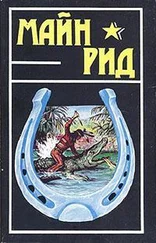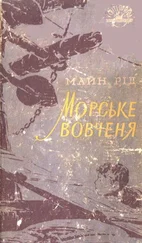“Can what, worthy father?”
“Make this young fellow satishfied to shtay with ush.”
The look which accompanied these words betokened some other meaning, than what they might have literally conveyed.
“Well,” replied Judith, affecting to understand them literally, “I fancy there will not be much difficulty about that. If he’s as poor as you say, he’ll only be too well pleased to get a good situation, and keep it, too, I should think.”
“I’sh not so sure about that. He’sh a young man of a proud spirit. That ish proved by hish leaving his uncle ash he has done – without a shilling in hish pocket – and then to defy the Cushtos faysh to faysh! Blesh my soul! what a foolish young fellow he ish! He must be managed, Shoodith, dear – he must be managed; and you’re shoost the one to do it.”
“Why, father, to hear you talk, one would think that this poor young Englishman was a rich sugar estate – to be managed for some grand profit – ”
“Aha!” exclaimed the other, interrupting her; “maybe yesh – maybe he ish a rich sugar estate. We shee – we shee.”
“Now, had it been the grand guest of Mount Welcome,” continued Judith, without heeding the interruption; “had it been this lord of Montagu Castle that you wished me to manage ,” – at the word the Jewess smiled significantly – “I might have come nearer comprehending you.”
“Ah! there is no schance there – no schance whatever, Shoodith.”
“No chance of what?” abruptly inquired the Jewess.
“Why, no schance of – that ish – ”
“Come, worthy rabbi, speak out! You needn’t be afraid to tell me of what you’re thinking: I know it already.”
“Of what wash I thinking, Shoodith?” The father put this question rather with a view to escape from an explanation. The daughter instantaneously answered,
“You were thinking, and I suppose still are, that I – your daughter, the child of an old nigger-dealer as you are – would have no chance with this aristocratic stranger who has arrived – this Mr Montagu Smythje. That’s your thought, Jacob Jessuron?”
“Well, Shoodith, dear! you know he ish to be the guesht of the Cushtos; and the Cushtos, ash I hash reason to know, hash an eye on him for his own daughter. Miss Vochan is thought a great belle, and it would be no ushe for ush to ashpire – ”
“She a belle!” exclaimed the Jewess, with a proud toss of her head, and a slight upturning of her beautiful spiral nostril; “she was not the belle of the last ball at the Bay – not she, indeed; and as for aspiring , the daughter of a slave-dealer is at least equal to the daughter of a slave – maybe a slave herself – ”
“Hush, Shoodith! not a word about that – not a whisper in the hearing of thish young man. You know he ish her cousin. Hush!”
“I don’t care if he was her brother,” rejoined the Jewess, still speaking in a tone of spiteful indignation – for Kate Vaughan’s beauty was Judith Jessuron’s especial fiend; “and if he were her brother,” continued she, “I’d treat him worse than I intend to do. Fortunately for him, he’s only her cousin; and as he has quarrelled with them all, I suppose – has he said anything of her ?”
The interrogatory was put as if suggested by some sudden thought – and the questioner seemed to wait with considerable anxiety for the answer.
“Of hish cousin Kate, you mean?”
“Why, who should I mean!” demanded Judith, bluntly. “There is no other she in Mount Welcome the young fellow is likely to be talking about; nor you either – unless, indeed, you’ve still got that copper-coloured wench in your head. Of course, it’s Kate Vaughan I mean. What says he of her? He must have seen her – short as his visit seems to have been; and, if so, you must have talked about her last night – since you sat late enough to have discussed the whole scandal of the island.”
With all this freedom of verbiage, the Jewess seemed not to lose sight of the original interrogatory; and her frequent repetition of it was rather intended to conceal the interest with which she looked for the answer. If her words did not betray that interest, her looks certainly did: for, as she bent forward to listen, a skilled observer might have detected in her eyes that sort of solicitude which springs from a heart where the love-passion is just beginning to develop itself – budding, but not yet blooming.
“True, Shoodith, true,” admitted the slave-merchant, thus bantered by his own bold offspring. “The young man did shpeak of hish cousin; for I hash a wish to know what wash hish opinion of her, and ashked him. I wash in hopes he had quarrelled with her too; but, ach! no – he hashn’t – he hashn’t.”
“What might that signify to you?”
“Moch, moch, daughter Shoodith; a great deal.”
“You’re a mysterious old man, father Jacob; and, though I’ve been studying you for nearly a score of years, I don’t half understand you yet. But what did he say of Kate Vaughan? He saw her, I suppose?”
“Yesh. He had an interview with her. He saysh she behaved very kind to him. He’sh not angry with her . S’help me, no!”
This information appeared to produce no very pleasant impression upon the Jewess; who, with her eyes downcast upon the floor, remained for some moments in a thoughtful attitude.
“Father,” she said, in a tone half serious, half in simplicity, “the young fellow has got a bit of blue ribbon in his button-hole. You have noticed it, I suppose? I am curious to know what he means by wearing that. Is it an order, or what? Did he tell you?”
“No. I notished it; but, ash he shayed nothings about it, I did not ashk him. It’sh no order – nothing of the kind. His father was only a poor artisht.”
“I wonder where he procured that piece of ribbon?” said Judith, speaking in a low tone, and half in soliloquy.
“You can ashk him for yourself, Shoodith. There ish no harm in that.”
“No, not I,” answered Judith, suddenly changing countenance, as if ashamed of having shown the weakness of curiosity. “What care I for him, or his ribbon?”
“No matter for that, Shoodith, dear; no matter for that, if yoush can make him care for you .”
“Care for me ! What, father! do you want him to fall in love with me?”
“Joosh that – joosh so.”
“For what reason, pray?”
“Don’t ash know. I hash a purpose. You shall know it in good time, Shoodith. You make him in luff with you – over head and earsh, if you like.”
The counsel did not appear averse to her who received it. Anything but displeasure was in her looks as she listened to it.
“But what,” asked she, after a reflective pause, and laughing as she spake, “what if, in luring him, I should myself fall into the lure? They say that the tarantula is sometimes taken in its own trap.”
“If you succeed in catching your fly, mine goot shpider Shoodith, that won’t signify. So much the better ish that. But fusht catch your fly. Don’t let go the shtrings of your heart, till you hash secured hish; and then you may do as you pleashe about falling in luff with him. Hush! I hear him coming from hish shamber. Now, Shoodith dear, show him every reshpect. Shower on him your sweetest of shmiles!”
And terminating the dialogue with this parental injunction, Jacob Jessuron walked off to conduct his guest into the great hall.
“Ah! worthy father!” said Judith, looking after him with a singular expression upon her countenance, “for once, you may find me a dutiful daughter; though not for you or your purpose – whatever that may be. I have my suspicion of what it is. No: not for that either – grand destiny as it might be deemed. There is something grander still – a passion perilous to play with; and just for that peril shall I play with it. Ha – he comes! How proud his step! He looks the master, and yon old Israelite his overseer – his book-keeper – ha! ha! ha!”
Читать дальше
Конец ознакомительного отрывка
Купить книгу











